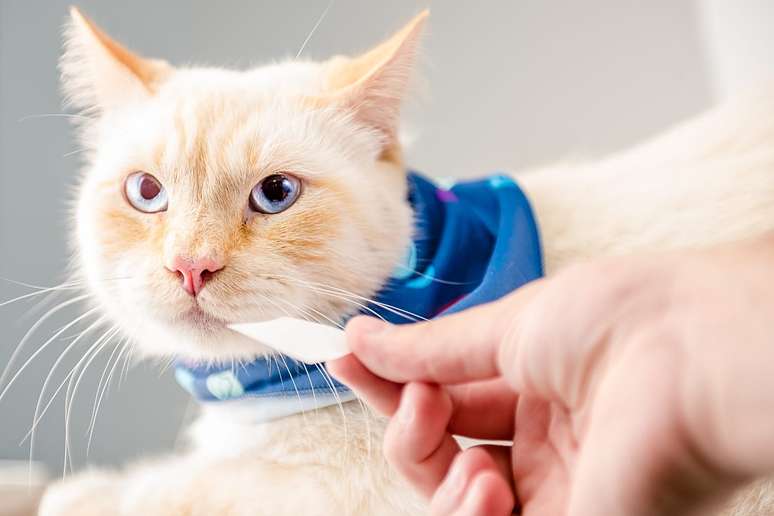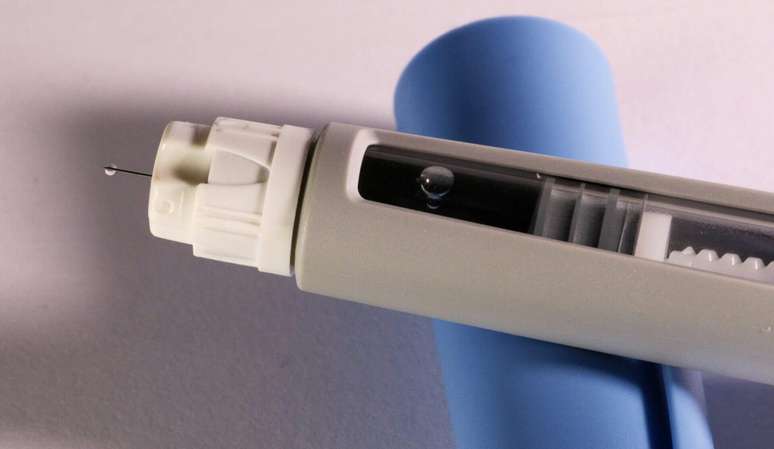Simple daily care can prevent the onset or worsening of diseases
Summary
Lack of appetite, vomiting, diarrhea, weight loss and changes in habits are the main clinical signs of digestive disorders and diseases in dogs and cats, ranging from brief ailments to serious infections and inflammation. Prevention is essential to avoid gastrointestinal pathologies or worsening of clinical conditions, and the owner must be aware of the forms of prevention and clinical signs.
Lack of appetite, vomiting, diarrhea, weight loss and changes in habits are the main clinical signs of digestive disorders and diseases in dogs and cats, ranging from brief ailments to serious infections and inflammation.
Prevention is essential to avoid gastrointestinal pathologies or worsening of clinical conditions. Therefore, Farah de Andrade, veterinarian and consultant of the veterinary preparation pharmacy chain DrogaVET, lists important tips.
Know your pet’s behavior and habits
Ingesting non-recommended foods, plants, objects, or excess food can cause discomfort, irritation, and even blockages. Therefore, as soon as the owner notices changes in behavior, reduced physical activity and appetite, signs of pain, vomiting and diarrhea, he should contact a veterinarian.
“It is important to check the possibility that some toxic object or element has been ingested and report the details of the changes and the animal’s history to the veterinarian, thus facilitating the diagnosis,” says the doctor.
Offer quality food
The veterinarian plays a fundamental role in providing guidance on the animal’s diet, indicating from industrialized or natural food options to the ideal quantity, considering age, size and clinical conditions.
“Quality nutrition is the most important point for the animal’s gastrointestinal health and must take into account the allergies, diseases and particularities of each patient,” comments Farah.
Hygiene
Another important factor is drinking clean, fresh water. The ideal is to offer filtered water and not let the animal drink water from puddles and lakes.
Cleaning the environment, the garden, the toilet mats and the litter box prevents the proliferation of worms and coprophagia. By preventing the cat from accessing the street and cleaning the dogs when they return from walks, contact and ingestion of dirt, worms and microorganisms are avoided.
Prevention of ectoparasites
In addition to discomfort and allergies, fleas also transmit worms, so controlling ectoparasites contributes to the development of worms.
Attention to the environment
Dogs and cats are curious and never miss an opportunity to try something that appeals to them. Therefore, it is essential to avoid access to waste, fatty foods, toxic plants, cleaning products, toys and objects that can be swallowed.
Main gastrointestinal diseases in dogs and cats
Worms are caused by worms and protozoa that nest in the animal’s body, mainly in the intestine, but can also nest in the liver, lungs and brain, becoming lethal. They are easily transmitted through contaminated water, feces and food; contact with the animal’s skin; insect bites; transmitted from mother to offspring, during pregnancy and breastfeeding; and ingesting fleas or contaminated animals such as geckos, birds and rodents.
Gastroenteritis is an inflammation of the entire digestive system and has several causes. Gastritis (inflammation of the stomach lining) is generally caused by bacterial or parasitic infections; kidney, liver, viral or hormonal diseases; food allergies or intolerances; fatigue; ingestion of toxic products or objects and also pharmacological treatments. Disorders of the liver, bile duct or pancreas can cause cholestasis, which is the reduction or interruption of bile (digestive fluid produced by the liver).
Pancreatitis is a serious inflammation of the pancreas, the organ that produces the substances responsible for digestion and can be acute, rapidly developing and can cause tissue necrosis and lead to death if not treated in time; and chronic, which is continuous and progressive inflammation, which causes permanent damage and loss of organ function.
Inflammatory bowel disease is an inflammation of the mucous membranes of the intestine and stomach with an unknown cause, but studies suggest that it is a consequence of a change in the animal’s inflammatory and immune response, which interferes with the absorption of nutrients and intestinal motility.
Intestinal dysbiosis is a condition in which there is an imbalance in the animal’s microbiota and a hyperpopulation of bad microorganisms, which can predispose bacterial translocation to other organs of the animal, generating infections. And canine colitis is an inflammation of the colon, the main part of the large intestine.
Personalized and facilitated treatments
Early diagnosis prevents worsening, but adherence to the recommended therapeutic resource is another crucial factor for successful treatment. Compounded and flavored veterinary medicines in different dosage forms facilitate the administration of medicines, especially in animals suffering from discomfort and nausea.
“Vermifuges, probiotics, prebiotics and active ingredients such as omeprazole, bromopride, ursodeoxycholic acid, silymarin and SAMe, for example, can be manipulated in the form of biscuits, syrup, oral paste or sauce with flavors such as cheese, meat, chicken, condensed milk and banana”, comments the vet.
Always with the aim of preventing the discomfort that some drugs can cause to the stomach of animals, DrogaVET has developed different pharmaceutical forms, such as enteric-coated capsules that resist gastric fluids and release their ingredients only in the intestine. In this way they avoid nausea and gastric irritation due to the active ingredients present in the stomach and ensure that the drugs, unstable in acidic environments, reach the intestine without reducing their effectiveness.
Transdermal gel is an option for pets who do not accept medications. In this dosage form, the drug is absorbed into the bloodstream through the skin, reducing metabolism in the gastrointestinal system. The oral film, a water-soluble sheet, adheres to the oral mucosa and dissolves rapidly, ensuring rapid release of the active ingredients, reducing the effects of the passage of the drug through the liver and decreasing the acidic degradation of the active ingredient in the stomach.
For animals with food sensitivities, diabetics, celiacs and kidney disease, hypoallergenic biscuits are available without gluten, colourants, preservatives, sugar, salt and animal proteins. There is no shortage of options to facilitate treatment, but it is essential that owners are aware of the forms of prevention and clinical signs.
inspires transformation in the world of work, in business, in society. Compass, a content and connection agency, is born.
Source: Terra
Ben Stock is a lifestyle journalist and author at Gossipify. He writes about topics such as health, wellness, travel, food and home decor. He provides practical advice and inspiration to improve well-being, keeps readers up to date with latest lifestyle news and trends, known for his engaging writing style, in-depth analysis and unique perspectives.







![Such a wonderful sun in advance: Summary of the episode on August 21, 2025 [SPOILERS] Such a wonderful sun in advance: Summary of the episode on August 21, 2025 [SPOILERS]](https://fr.web.img5.acsta.net/img/d3/05/d305bc2e988868b047486aa1f425d806.jpg)
